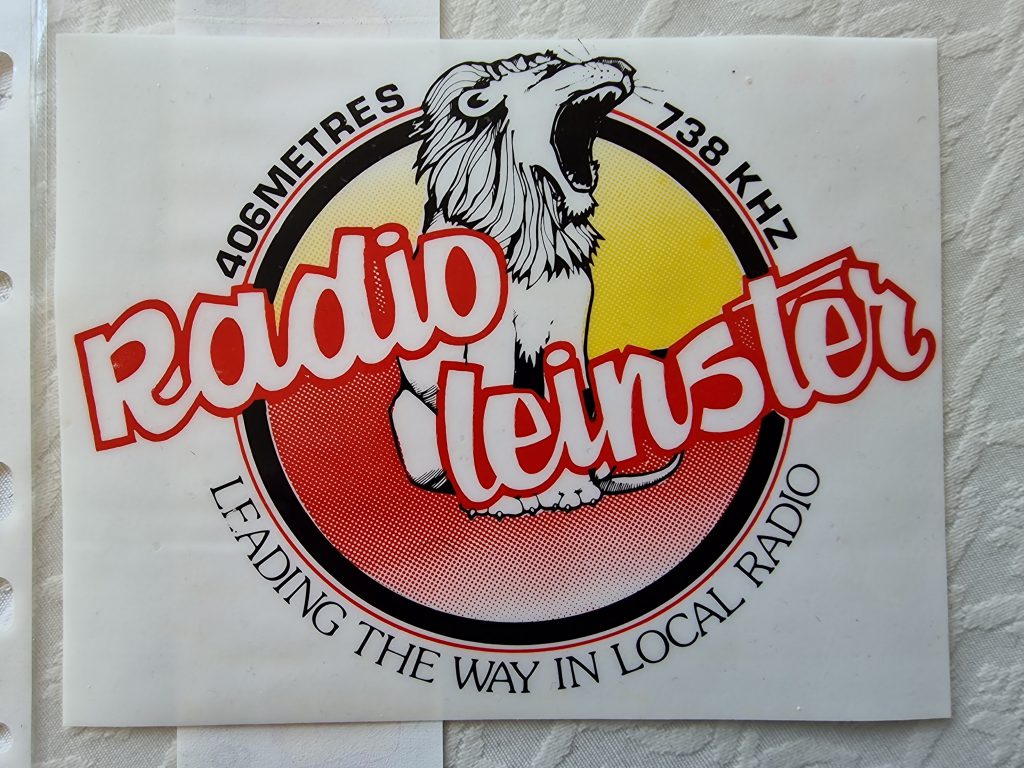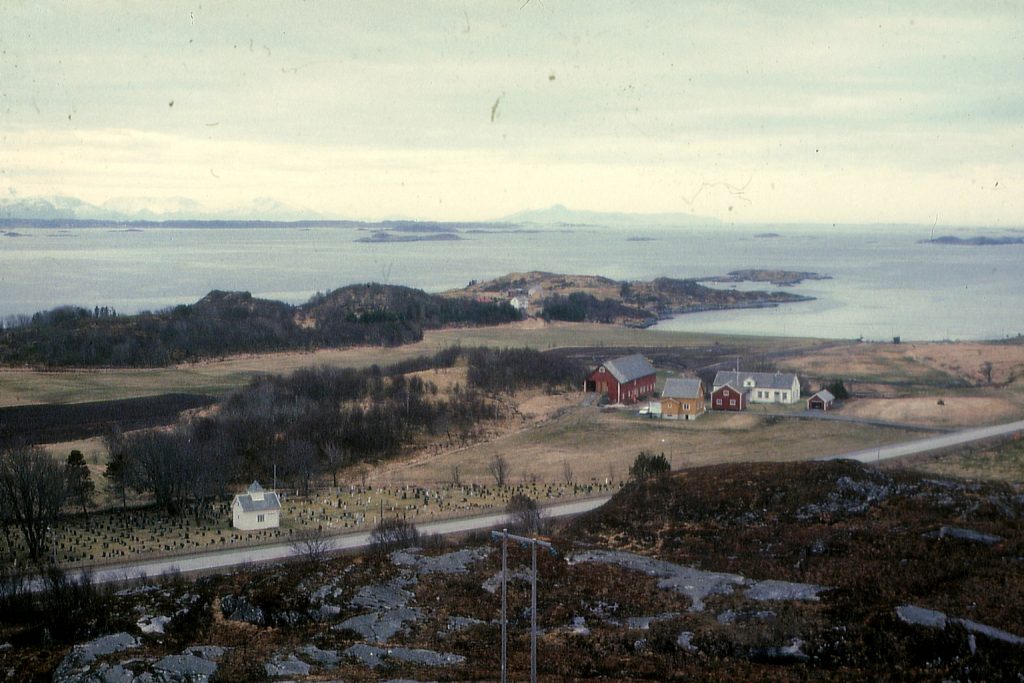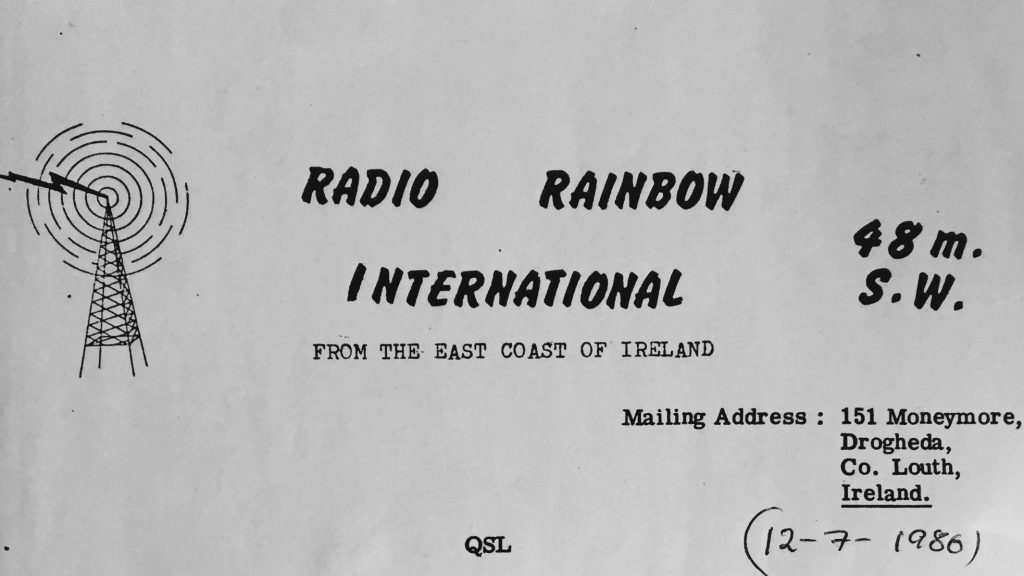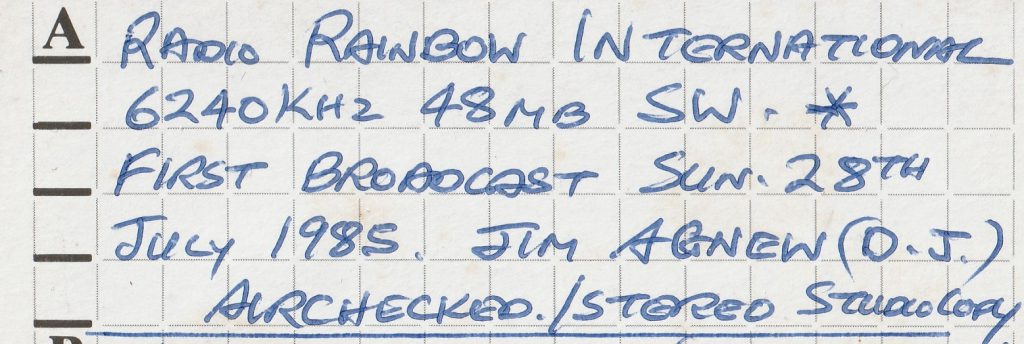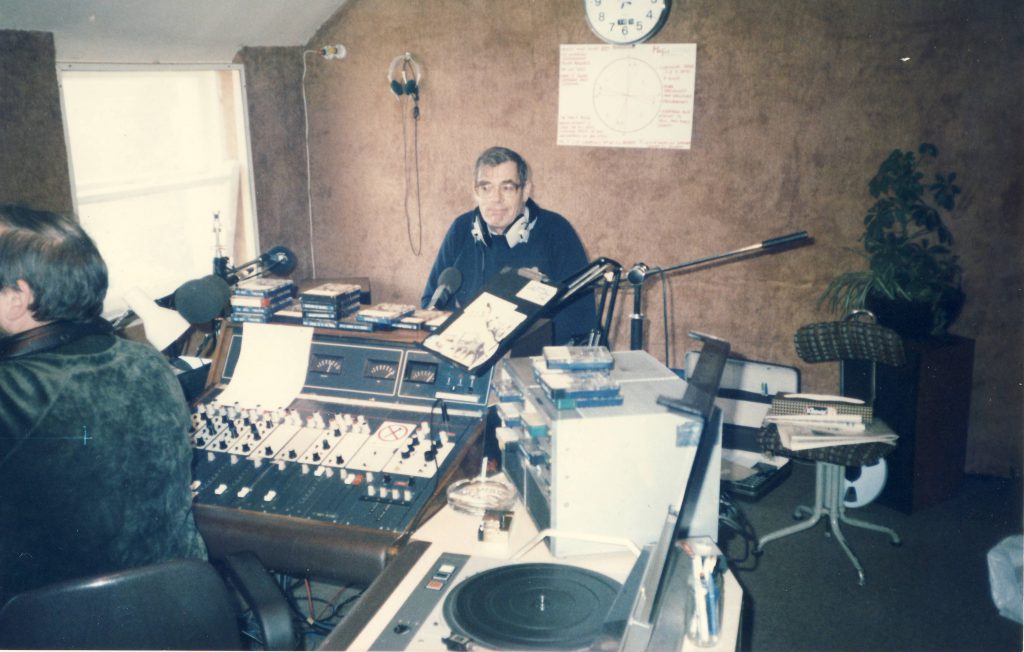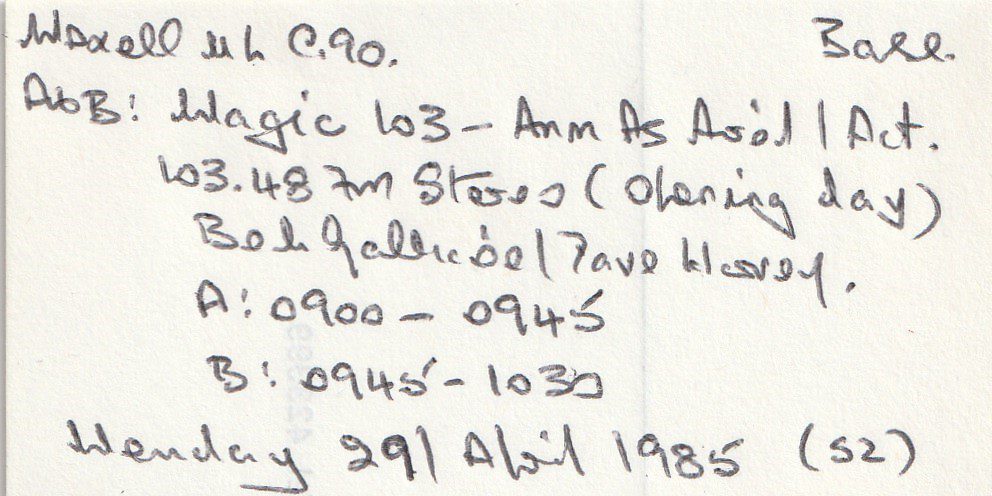Podcast: Play in new window | Download
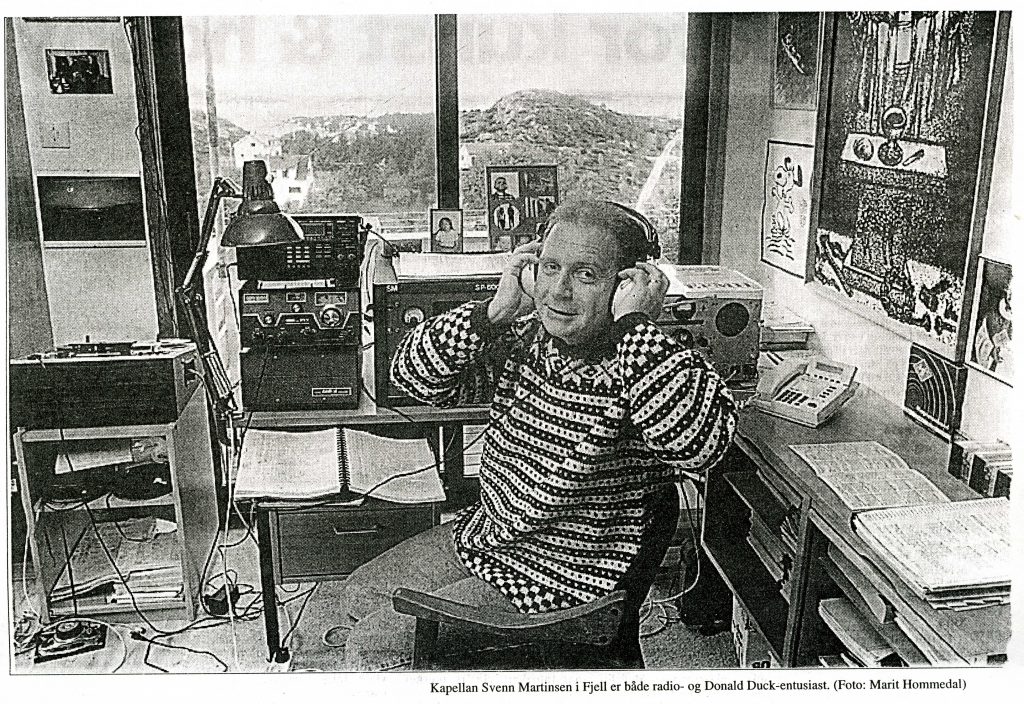
This recording of Radio Star Country was made in Solsvik in western Norway, northwest of Bergen and facing the North Sea. It features non-stop music in early 1989, not long after all the Irish pirates were suposed to leave the airwaves in the new era of licensed radio. The automated programme includes a promo voiced by the late Don Allen announcing the frequency of 981 kHz or 305 metres, to which Radio Star Country had moved a few weeks previously. The Swan Lake Hotel in Monaghan Town is referenced as the station’s address and a number in Armagh is given for advertising. After 25 minutes the tape changes to another recording featuring a male DJ and adverts for businesses north and south of the border. It is not clear if this was recorded on the same day or on another occasion.
The press photo is from the newspaper Vestnytt on September 4th 1996 and shows the donor of this recording, Svenn Martinsen with his receivers ESKA RX33 DX, Drake SPR-4, Hammarlund SP600 JX21 and Autophon E627. The headline translates as ‘Radioactive priest’, reflecting Svenn’s profession. He recalls: ‘I mostly used the Drake SPR-4 for listening to Radio Star Country 981, Radio North 846, North Atlantic 846, 954 and 1116 and other Irish stations’.
Due to the distance between the transmitter and receiver, there is deep fading at various points in the tape, with the Algerian station on the same frequency coming through underneath. The recording was made on 16th February 1989 from 0745-0813 on a Drake SPR-4 receiver with a 200-metre Beverage antenna aimed towards the southwest from the western Norwegian coast. Many thanks to Svenn for the donation.

